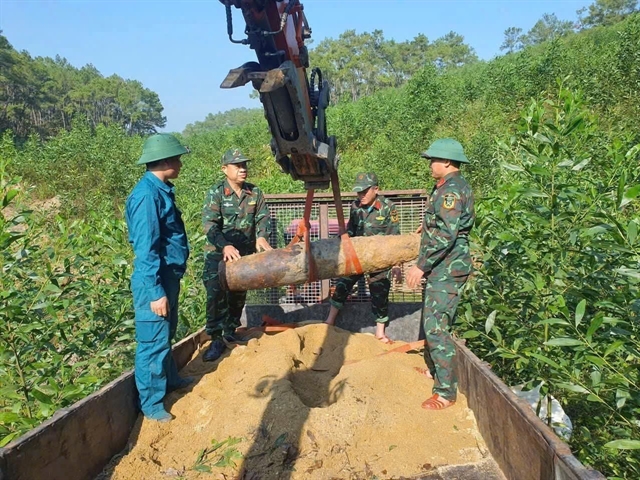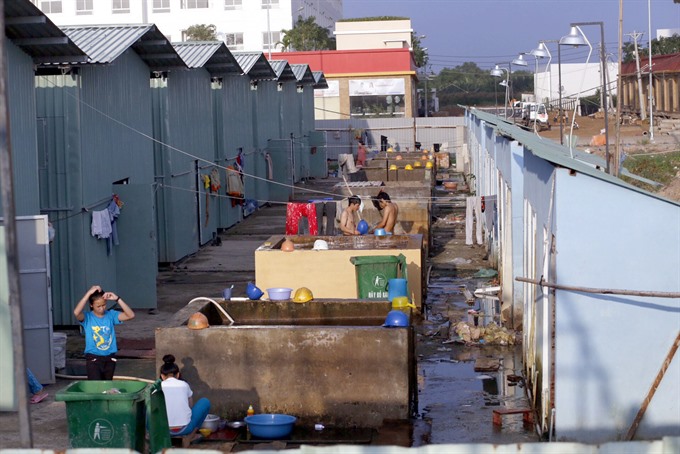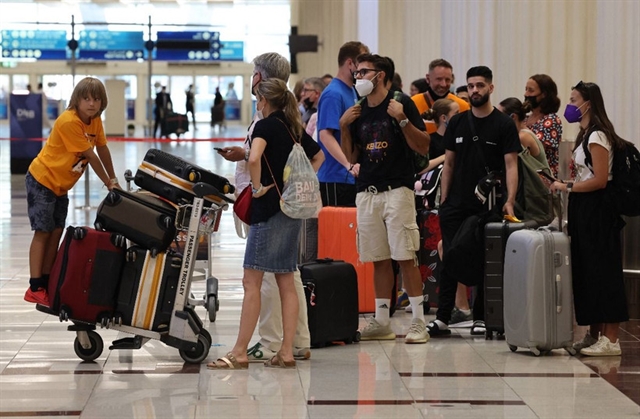 Society
Society

Increased numbers of people flocking to cities for work and study make renting a thriving business, but managing temporary residences for migrants has emerged as a new burden for cities.
 |
| A rental area for migrant workers in HCM City’s District 2. Increased numbers of people flocking to cities for work and study make renting a thriving business in cities, but managing temporary residences for migrants has emerged as a new burden for the city. -- VNS Photo Việt Thanh |
HÀ NỘI – Increased numbers of people flocking to cities for work and study make renting a thriving business, but managing temporary residences for migrants has emerged as a new burden for cities.
Nguyễn Điện Nam, the Vice head of Police of Kim Chung Commune in Hà Nội’s Đông Anh District, said the commune has a high percentage of migrant workers because it serves the Bắc Thăng Long Industrial Zone.
The number of workers registering temporary residence in the commune is highly changeable. The commune’s population is currently 27,000, including 15,000 migrant workers. But the actual number of migrant workers may be higher because migrant workers did not always register temporary residence, Nam said.
Police face difficulties overseeing migrant workers who come and go without reporting their residencies. One such difficulty is understaffing. The commune only has 20 police officers.
Wanted men sometimes hide in the commune, taking advantage of the crowd and the number of migrants.
A 25-year-old worker named Hoa told Lao động (The Labour) newspaper she left her hometown for Hà Nội to work at Bắc Thăng Long Industrial Zone.
She pays VNĐ500,000 (US$22.4 ) a month to rent a 5-square-metre room in a group of about 50 rooms in Kim Chung Commune.
“I have lived here for four months. But no one has asked me to register my temporary residence,” she said. "My neighbourers have lived here for about two years, and they did not register their temporary residence with local authorites either," she said.
Similar situations occur in areas which surround industrial zones, universities and colleges.
University student Phạm Văn Hiệp, 23 years old, of northern Vĩnh Phúc Province, said he rented a room and lived in Xuân Đỉnh Commune, Bắc Từ Liêm District for three years.
“I have not registered my temporary residence,” he said.
National Assembly deputy Bùi Thị An said governmment control of temporary residence is needed to ensure social order and security. She said police must work harder and help people, particularly renters and tenants, to fulfill their obligations relating to temporary residence registration.
Lawyer Lê Cao from central Đà Nẵng City Bar Association said Residence Law regulates temporary residence registration. Those who live, work and study at a host ward, commune or town who are not eligible for permanent resident status must register for temporary residence within 30 days after they arrive at the locality. Tenants or hosts may report to the police directly, by phone or via Internet.
Violators will be fined VNĐ100,000 – VNĐ 300,000 ($4.4 – 13.4) for disobeying the rules. -- VNS




